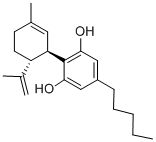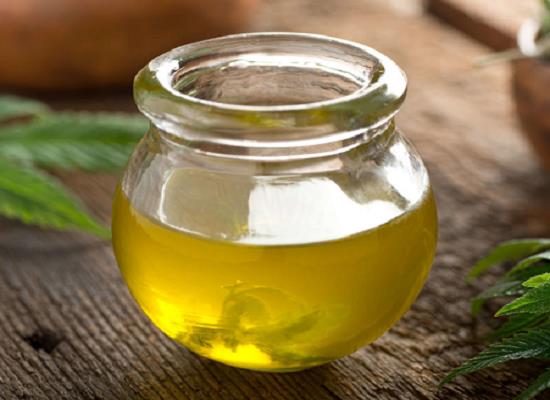Introduction of CANNABIDIOL
Overview Information
Cannabidiol is a chemical in the Cannabis sativa plant, also known as marijuana or hemp. Over 80 chemicals, known as cannabinoids, have been identified in the Cannabis sativa plant. While delta-9-tetrahydrocannabinol (THC) is the major active ingredient in marijuana, cannabidiol is also obtained from hemp, which contains only very small amounts of THC.
The passage of the 2018 Farm Bill made it legal to sell hemp and hemp products in the U.S. But that doesn't mean that all hemp-derived cannabidiol products are legal. Since cannabidiol has been studied as a new drug, it can't be legally included in foods or dietary supplements. Also, cannabidiol can't be included in products marketed with therapeutic claims. Cannabidiol can only be included in "cosmetic" products and only if it contains less than 0.3% THC. But there are still products labeled as dietary supplements on the market that contain cannabidiol. The amount of cannabidiol contained in these products is not always reported accurately on the product label.
Cannabidiol is most commonly used for seizure disorder (epilepsy). It is also used for anxiety, pain, a muscle disorder called dystonia, Parkinson disease, Crohn disease, and many other conditions, but there is no good scientific evidence to support these uses.
How does it work?
Cannabidiol has antipsychotic effects. The exact cause for these effects is not clear. But cannabidiol seems to prevent the breakdown of a chemical in the brain that affects pain, mood, and mental function. Preventing the breakdown of this chemical and increasing its levels in the blood seems to reduce psychotic symptoms associated with conditions such as schizophrenia. Cannabidiol might also block some of the psychoactive effects of delta-9-tetrahydrocannabinol (THC). Also, cannabidiol seems to reduce pain and anxiety.
Uses & Effectiveness?
Likely Effective for
Seizure disorder (epilepsy). A specific cannabidiol product (Epidiolex, GW Pharmaceuticals) has been shown to reduce seizures in adults and children with various conditions that are linked with seizures. This product is a prescription drug for treating seizures caused by Dravet syndrome or Lennox-Gastaut syndrome. It has also been shown to reduce seizures in people with tuberous sclerosis complex, Sturge-Weber syndrome, febrile infection-related epilepsy syndrome (FIRES), and specific genetic disorders that cause epileptic encephalopathy. But it's not approved for treating these other types of seizures.
Possibly Effective for
Multiple sclerosis (MS). A prescription-only nasal spray product (Sativex, GW Pharmaceuticals) containing both 9-delta-tetrahydrocannabinol (THC) and cannabidiol has been shown to be effective for improving pain, muscle-tightness, and urination frequency in people with MS. This product is used in over 25 countries outside of the United States. But there is inconsistent evidence on the effectiveness of cannabidiol for symptoms of multiple sclerosis when it is used alone. Some early research suggests that using a cannabidiol spray under the tongue might improve pain and muscle tightness, but not muscle spasms, tiredness, bladder control, mobility, or well-being and quality of life in patients with MS.
Insufficient Evidence for
Bipolar disorder. Early reports show that taking cannabidiol does not improve manic episodes in people with bipolar disorders.
A type of inflammatory bowel disease (Crohn disease). Early research shows that taking cannabidiol does not reduce disease activity in adults with Crohn disease.
Diabetes. Early research shows that taking cannabidiol does not improve blood glucose levels, blood insulin levels, or HbA1c in adults with type 2 diabetes.
A movement disorder marked by involuntary muscle contractions (dystonia). Early research suggests that taking cannabidiol daily for 6 weeks might improve dystonia by 20% to 50% in some people. Higher quality research is needed to confirm this.
A condition in which a transplant attacks the body (graft-versus-host disease or GVHD). Graft-versus-host disease is a complication that can occur after a bone marrow transplant. In people with this condition, donor cells attack the person's own cells. Early research shows that taking cannabidiol daily starting 7 days before bone marrow transplant and continuing for 30 days after transplant can extend the time it takes for a person to develop GVHD.
An inherited brain disorder that affects movements, emotions, and thinking (Huntington disease). Early research shows that taking cannabidiol daily does not improve symptoms of Huntington's disease.
Insomnia. Early research suggests that taking 160 mg of cannabidiol before bed improves sleep time in people with insomnia. However, lower doses do not have this effect. Cannabidiol also does not seem to help people fall asleep and might reduce the ability to recall dreams.
Multiple sclerosis (MS). There is inconsistent evidence on the effectiveness of cannabidiol for symptoms of multiple sclerosis. Some early research suggests that using a cannabidiol spray under the tongue might improve pain and muscle tightness in people with MS. However, it does not appear to improve muscle spasms, tiredness, bladder control, the ability to move around, or well-being and quality of life.
Withdrawal from heroin, morphine, and other opioid drugs. Early research shows that taking cannabidiol for 3 days reduces cravings and anxiety in people with heroin use disorder that are not using heroin or any other opioid drugs.
Parkinson disease. Some early research shows that taking cannabidiol daily for 4 weeks improves psychotic symptoms in people with Parkinson disease and psychosis.
Schizophrenia. Research on the use of cannabidiol for psychotic symptoms in people with schizophrenia is conflicting. Some early research suggests that taking cannabidiol four times daily for 4 weeks improves psychotic symptoms and might be as effective as the antipsychotic medication amisulpride. However, other early research suggests that taking cannabidiol for 14 days is not beneficial. The conflicting results might be related to the cannabidiol dose used and duration of treatment.
Quitting smoking. Early research suggests that inhaling cannabidiol with an inhaler for one week might reduce the number of cigarettes smoked by about 40% compared to baseline.
A type of anxiety marked by fear in some or all social settings (social anxiety disorder). Some early research shows that taking cannabidiol 300 mg daily does not improve anxiety during public speaking in people with social anxiety disorder. However, other early research in people with social anxiety disorder suggests that taking a higher dose (400-600 mg) may improve anxiety associated with public speaking or medical imaging testing. Also, some research in people who do not have social anxie


